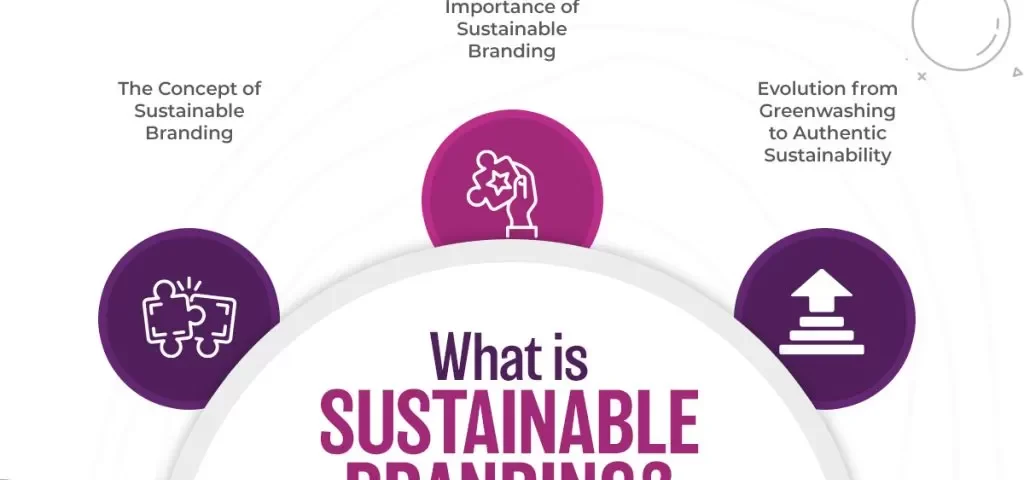- Have any questions?
- +91 96020 93137
- +91 93525 62080
- info@worldseoservices.com
Building a Sustainable Brand: Why Ethics and Transparency Are the Future

The Psychology of Branding: Colors, Fonts, and Shapes That Influence Customers
December 28, 2024
Brand Positioning Strategies: How to Stand Out in a Crowded Market
December 30, 2024Highlight the growing importance of sustainability and ethical practices in modern branding.
In today’s dynamic business landscape, sustainability, ethics, and transparency have transitioned from being optional to essential for brand success. Customers increasingly gravitate toward businesses that align with their values, prioritizing social and environmental responsibility. For companies looking to establish trust and longevity, building a Sustainable Brand: Ethics and Transparency must be at the core of their strategy.
At World SEO Services, we recognize that a sustainable brand is not just about eco-friendly practices—it’s about being accountable, authentic, and forward-thinking in every facet of operations. Let’s explore why ethics and transparency are crucial and how they can future-proof your business.

The Rise of Ethical Consumerism
The modern consumer is highly informed and selective. They expect brands to take clear stances on environmental and social issues. Ethical consumerism is about more than just buying products; it’s about supporting brands that contribute positively to society.
Key Statistics Driving Ethical Consumerism:
- Over 70% of consumers prefer to purchase from companies committed to sustainability.
- Millennials and Gen Z are leading the charge, actively avoiding brands involved in unethical practices.
- Companies with transparent supply chains see increased customer loyalty.
This shift underscores why businesses must adapt by embedding ethics and transparency into their brand DNA.
Defining a Sustainable Brand
A sustainable brand integrates long-term environmental, social, and governance (ESG) goals into its operations. It balances profitability with purpose, ensuring the business’s success benefits all stakeholders—customers, employees, communities, and the planet.
Core Principles of a Sustainable Brand:
- Environmental Responsibility: Minimizing carbon footprints, reducing waste, and adopting renewable energy.
- Social Equity: Supporting fair labor practices and community engagement.
- Economic Viability: Ensuring long-term profitability while prioritizing ethical decision-making.
Why Ethics and Transparency Are Key
1. Trust is the Currency of the Future
Trust is the foundation of any successful brand. Transparency—about sourcing, pricing, or environmental impact—builds this trust. Consumers are more likely to support a brand when they understand its practices and values.
Example: Patagonia, a leader in sustainable fashion, openly shares its environmental footprint, enhancing trust and loyalty among eco-conscious consumers.
2. Attracting and Retaining Customers
Consumers are drawn to brands that reflect their values. Ethical practices and clear communication about them can turn one-time buyers into lifelong advocates.
Example: Ben & Jerry’s champions social justice issues, which has earned the brand a dedicated global following.
3. Differentiation in a Competitive Market
In crowded marketplaces, brands that emphasize ethics and transparency stand out. Sustainable practices and honest storytelling give consumers compelling reasons to choose your products over competitors’.
Example: Tesla’s commitment to renewable energy and innovation differentiates it in the automotive industry.
4. Meeting Regulatory Requirements
Governments worldwide are tightening regulations on sustainability and transparency. Building a sustainable brand now helps you stay ahead of legal mandates and reduces compliance risks.

How to Build a Sustainable Brand
1. Define Your Ethical Mission
Start by identifying your brand’s core values and commitments. This mission should guide your decisions and resonate with your audience.
Action Steps:
- Conduct stakeholder interviews to understand priorities.
- Develop a mission statement emphasizing sustainability and ethics.
2. Adopt Transparent Practices
Openness about sourcing, production, and pricing helps customers see the real impact of their purchases.
Action Steps:
- Share details about your supply chain on your website.
- Use clear, honest messaging in marketing materials.
3. Invest in Sustainable Operations
Incorporate environmentally friendly practices into your business model.
Action Steps:
- Switch to renewable energy sources.
- Reduce packaging waste by using recyclable materials.
- Collaborate with eco-friendly suppliers.
4. Engage Your Audience
Build meaningful relationships with your customers by involving them in your sustainability journey.
Action Steps:
- Host interactive events or webinars on sustainability topics.
- Share progress updates on achieving sustainability goals.
- Encourage customer feedback to improve practices.
5. Educate Your Team
Empowering employees with knowledge about your sustainability initiatives fosters a unified and motivated workforce.
Action Steps:
- Conduct regular training sessions on ethical practices.
- Encourage employees to contribute ideas for sustainable innovation.
Challenges in Building a Sustainable Brand
Building a sustainable brand is not without its hurdles. Common challenges include:
- Higher Costs: Sustainable practices often require upfront investment, which can strain budgets.
- Greenwashing Risks: Overstating your sustainability efforts can damage trust. Be authentic and accurate in all claims.
- Supply Chain Complexity: Ensuring ethical sourcing requires thorough vetting and monitoring.
Solutions:
- Focus on incremental changes to manage costs.
- Partner with reputable third-party certifications to verify sustainability efforts.
- Invest in technology to monitor and optimize supply chain operations.

The Long-Term Benefits of a Sustainable Brand
- Increased Customer Loyalty: Ethical practices inspire deeper connections with your audience.
- Attracting Talent: Employees, especially younger ones, prefer working for socially responsible companies.
- Future-Proofing: Sustainability positions your brand for success in an evolving market landscape.
Examples of Brands Excelling in Ethics and Transparency
- Patagonia: Known for its commitment to environmental conservation and ethical practices.
- The Body Shop: A pioneer in cruelty-free and sustainable beauty products.
- Unilever: With brands like Dove and Ben & Jerry’s, it emphasizes sustainability and social impact.


